
Following US Withdrawal From JCPOA: All Quiet on Tehran Stocks Front
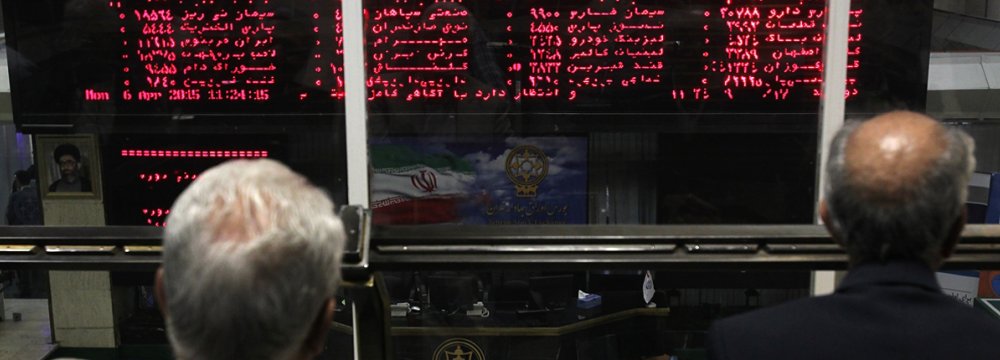
It did not come as a surprise to most observers, as he repeatedly teased in his tweets on a US withdrawal every few months.
But even expected things can sour moods and the ripple effect of Trump's decision is already resonating all around the world.
The US has risked alienating its European allies who were against a pullout, as foreign businesses in Iran face an existential threat over restored US sanctions.
One would naturally expect Tehran stocks to be in a freefall with all that risk in the air.
Not quite so! Tehran Stock Exchange's benchmark index inched up 0.09% on Wednesday to 93,691.2 and Iran Fara Bourse's IFX dropped 0.78% to 1,070.9.
In fact, the most damage the development inflicted on Wednesday seems to be capping TEDPIX and IFX's three-day winning streak.
Tehran stock market's lifeline has always been tied to political risks, especially one as daunting as the nuclear deal going down.
Equities' Hopes and Fears
Tehran stocks have had a long and arduous relationship with the nuclear deal, formally known as the Joint Comprehensive Plan of Action.
The deal was not signed overnight; negotiations took years spanning a few presidential terms. But it was during the first term of the current President Hassan Rouhani that it took a more serious turn and was publicized to the people as a campaign promise that sanctions will be lifted and the isolated Iranian economy will return to the international community.
Positive developments in negotiations obviously had stocks growing on their back, with oil being the main benefactor and automotive and base metals' stocks following suit. This happened with a bit of lag, however, as investors either reacted or cautiously picked up trading after negotiations advanced.
For instance, when Iran and the P5+1 reached a comprehensive deal on July 2015, TEDPIX started a downfall contrary to expectations that would not cease for the next three months. It dropped from a height of 69,400 on July 14 to about 62,000 on October 13.
The interesting fact is that TEDPIX racked up most of its gains in the run up to the signing of the deal, gathering 7,400 points in only about a month.
In other words, most of Tehran stocks' fluctuations have taken place over speculating about a certain development–like JCPOA's fate–rather than its actual materialization.
In fact, the equities' freefall expected from the US pullout has already happened over the last month and a half. TSE started the current fiscal year (March 21, 2018-19) at 96,425, and following a seesaw pattern, stood at 93,600 on Tuesday.
Of course, it must be noted that stocks performance also had much to do with wild foreign currency fluctuations, internal political developments and overall corporate performance. But ever since its inception, JCPOA's fate was the prime systematic risk darkening Tehran's stock market.
The Trump Effect
Donald Trump's election as the president of the US on November 8, 2016, also had the same effect on Tehran Stocks, but with a twist.
Coming out a near two-month long rally, the index started bleeding about 10 days before the election results came in and lost 1,200 points. When Trump won the Electoral College vote, it shed 860 points in one day and 600 the next day.
It took TSE only one day to get back on its feet and recoup all the losses and more over a month. But a period of recession kicked in next that would not cease until March 2017.
"Bad deal!" roared Donald as he came into office, and thus the Trump effect was introduced to Tehran investors expecting good post-JCPOA days.
Spooked foreign companies were now much harder to work with due to the US fiery rhetoric on Iran. And what's worse, Trump had started threatening to pull out of the deal much before the 120-day deadline for sanctions waiver came to an end.
Fluctuations became more pronounced afterwards. For instance, between Sept. 22 and Oct. 8, 2016, TEDPIX shed over 1,200 points in anticipation of Trump refusing to waive sanctions, even though market fundamentals were strong over the commodities boom in 2017.
What Next?
In the wake of Trump's announcement, President Hassan Rouhani said Iran will take a few weeks to decide how to respond to the US withdrawal.
Speaking live on television, he noted that Iran would abide by its commitments while it consults with JCPOA's other signatories–namely the United Kingdom, France, Russia and China, plus Germany.
The reintroduced sanctions are set to snap back after 90- and 180-day wind down periods, according to a fact sheet released by the White House.
This means that western airlines, carmakers, hotel groups, mining and oil companies having jumped to cash in on Iran's market opportunities must now be devising their plan B, if they had not before.
Will that hurt the Iranian economy, and in turn the stock market? Yes, of course, but not as much as its psychological effect radiates.
For starters, the deal turned out not to be the all-encompassing-cure it was sold as, since even though sanctions on the Central Bank of Iran and oil exports were lifted, secondary US sanctions remained in place.
Iran was still effectively barred from dealing in USD and no significant international bank resumed working with Iran.
Same holds true for big global firms. Other than a few notable deals such as Boeing, Airbus and Total SA, other sectors did not get much. The auto industry's deal with France's Renault was in the air even before the US pullout and most foreign mining and steel companies operating in Iran were there even before the deal.
But JCPOA's demise, sans its limited economic benefits, will nonetheless be a blow to Iran. Oil exports could be limited with Saudi Arabia already pledging to fill the supply gap; banking ties could become even more tenuous, and the current foreign currency market crisis could take a turn for the worse.
The severity of the situation could only be properly gauged in the next few months. Will Iran reactivate its nuclear program, or go along with the other JCPOA signatories? Can Europe save the deal, or will they act as an appendix to US foreign policy? Only time can tell.


Gold price eases after Trump downplays clash with Fed chair Powell

Copper price hits new record as tariff deadline looms
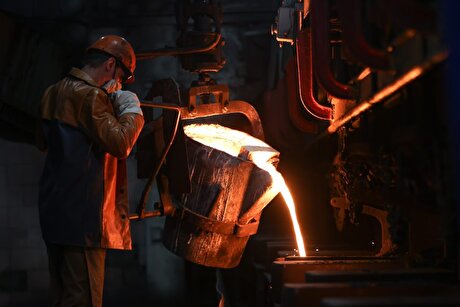
Brazil producers look to halt pig iron output as US tariff threat crimps demand
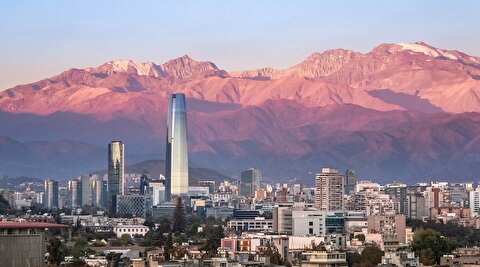
Chile’s 2025 vote puts mining sector’s future on the line

Gold price could hit $4,000 by year-end, says Fidelity
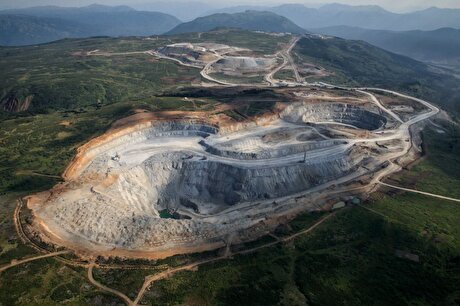
Three workers rescued after 60 hours trapped in Canada mine
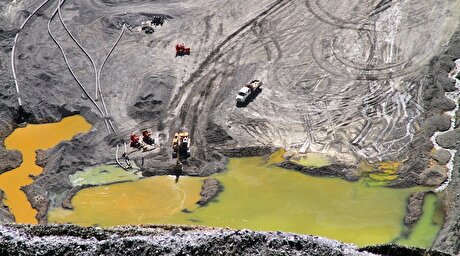
US targets mine waste to boost local critical minerals supply
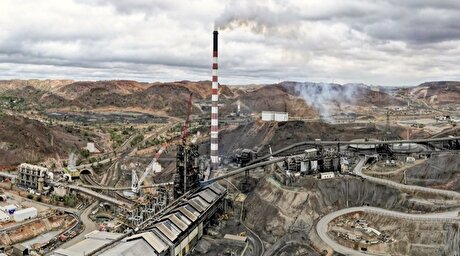
Glencore workers brace for layoffs on looming Mount Isa shutdown
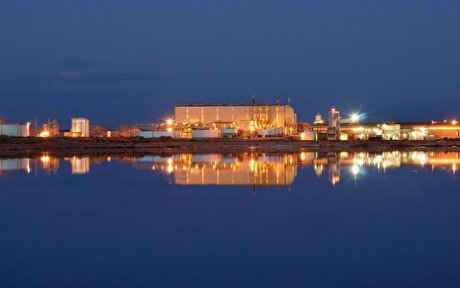
Energy Fuels surges to 3-year high as it begins heavy rare earth production
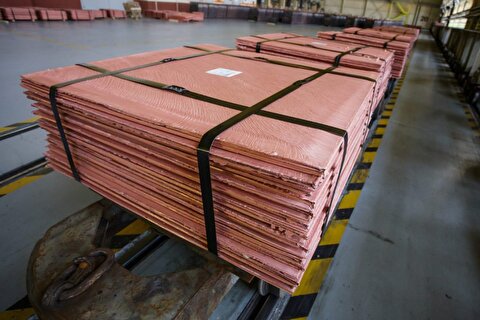
Trump tariff surprise triggers implosion of massive copper trade

Maxus expands land holdings at Quarry antimony project in British Columbia

BHP, Vale accused of ‘cheating’ UK law firm out of $1.7 billion in fees
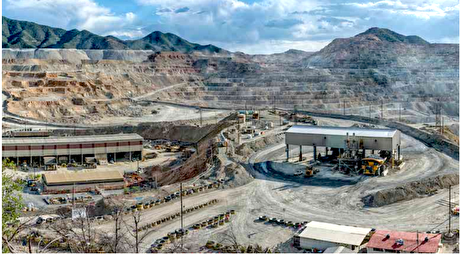
Southern Copper eyes $10.2B Mexico investment pending talks

American Tungsten gets site remediation plan approved for Ima mine in Idaho

Kinross divests entire 12% stake in Yukon-focused White Gold

Gold price could hit $4,000 by year-end, says Fidelity

Southern Copper expects turmoil from US-China trade war to hit copper

Ramaco Resources secures five year permit for Brook rare earth mine in Wyoming

Column: EU’s pledge for $250 billion of US energy imports is delusional

Trump tariff surprise triggers implosion of massive copper trade

Maxus expands land holdings at Quarry antimony project in British Columbia

BHP, Vale accused of ‘cheating’ UK law firm out of $1.7 billion in fees

Southern Copper eyes $10.2B Mexico investment pending talks

American Tungsten gets site remediation plan approved for Ima mine in Idaho

Kinross divests entire 12% stake in Yukon-focused White Gold

Gold price could hit $4,000 by year-end, says Fidelity

Southern Copper expects turmoil from US-China trade war to hit copper

Ramaco Resources secures five year permit for Brook rare earth mine in Wyoming














